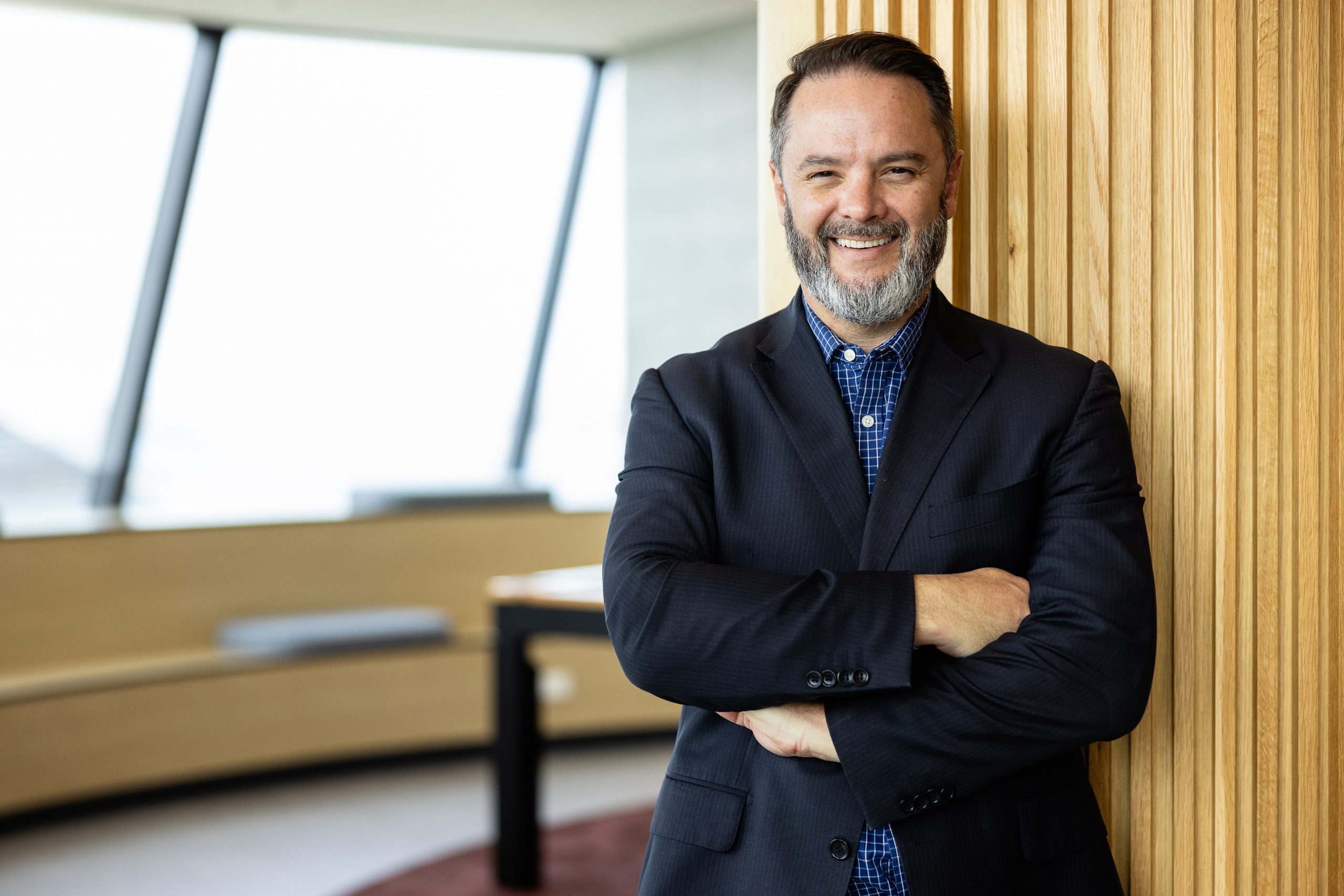The history of medicine is long periods of hard work and steady progress, punctuated by world-changing breakthroughs that shift the whole practice forward. Generative AI is tipped to be one of those big revolutions, promising clinicians two of the most effective healing tools – more time, and better information. While discoveries such as penicillin 100 years ago have saved millions of lives, generative AI has not one, but thousands, of applications, making it the most powerful tool yet.
However, unlike penicillin, generative AI wasn’t a chance discovery. The evolution of AI, from its mid-20th-century origins to the current gen AI era, symbolises a constant march of progress. In radiology, ophthalmology, dermatology and pathology, for example, machine learning has been in use for decades. Kiwi breast imaging specialist Volpara is one of the shining lights in this field, having developed world-leading machine learning software to help radiologists identify patients with greater cancer risk due to dense breast tissue and conduct higher quality breast screens. Its technology has now reached the stage where it can also be applied to screening for breast arterial calcifications that signal high risk of cardiovascular disease, effectively being able to detect both cancer and heart disease in one scan.
Mosgiel-based Techion is another great example, having used AI to count parasite eggs in animal faecal samples to address anthelmintic overuse and drug resistance testing to improve health in livestock. Techion is now applying these successes to human health, using Microsoft cloud and Custom Vision AI technology to in time, enable remote analysis of a range of microscope-based tests from regional clinics and hospitals. This could radically reduce geographical inequities when it comes to health services, removing the need for patients to travel for testing, or clinicians to travel to remote locations. Plans are now afoot to support diagnosis and treatment of tropical diseases in difficult-to-resource areas.
But it’s generative AI that offers totally new opportunities that could turn healthcare on its head, using a combination of sophisticated algorithms, vast datasets, powerful computational capabilities and human input. Generative AI programs, fundamentally different from their predecessors, can eliminate the need for laborious and expensive task-specific training, automatically providing prompts to guide admin workers or clinicians alike through new tasks, and enabling them to ask questions in everyday language.
Accenture estimates that 70% of healthcare worker tasks could be reinvented through technology augmentation or automation.
This reinvention isn’t intended to replace healthcare workers; instead, it can support and enhance their skills. For example, one health agency is developing a tool which provides on-the-go online training for GPs, nurses, and specialists through AI-generated patient scenarios. Enabling users to refresh their approaches to everyday medical scenarios or perfect testing procedures, the tool allows medical professionals to learn skills at a time and place that suits them. They are provided with a digital “patient” and scenario – say a 42-year-old male who’s presented with stomach pains following an accident at home – then given guidance on their responses to the patient (including recommendations and even language and tone), and prompted as needed with options to suggest x-rays, blood tests and other procedures. It’s a much quicker, more cost-effective option than using hired actors, and gives clinicians the chance to prepare and train for all kinds of new situations before they happen.
Other AI implementations, like the Microsoft + Nuance voice recognition tool Dragon Medical One and DAX Copilot, are also simplifying the lives of medical professionals by efficiently transcribing voice notes into patient insights and notes. This is particularly pertinent for busy doctors who often find themselves playing catch-up on administrative tasks after a consultation, enabling them to engage in more meaningful one-on-one interactions.
It can also put a lot more power in the hands of patients. In New Zealand, social innovator pAI2 created the Azure-based MyCare platform, which enables Kiwis needing in-home care to choose the support worker they want, providing continuity of care. Chief executive Matt Owen says there are plans to explore an even more sophisticated model, employing generative AI algorithms to match individuals with the most suitable support workers based on personality types, bios and previous history.
Amidst the exciting transformations in the healthcare sector, it’s essential to acknowledge that while AI will play an increasingly valuable role, human professionals must remain central to overseeing tasks, ensuring accuracy, and addressing potential biases. A strong ethical foundation to any AI implementation is absolutely crucial. Here at Microsoft, we’ve outlined six guiding principles for AI in health settings:
- Fairness: AI Systems should treat all people fairly.
- Reliability and safety: AI systems should perform reliably and safely.
- Privacy and security: AI systems should be secure and respect privacy.
- Inclusiveness: AI systems should empower everyone and engage people.
- Transparency: AI systems should be understandable.
- Accountability: People should be accountable for AI systems.
However, merely establishing these principles is just the starting point. As the technology evolves, these will no doubt need to be readjusted. While Microsoft has invested significantly in baking in robust privacy, security and ethical guardrails across its AI technologies, it’s also up to every care provider and practitioner to ensure the expected standards are being upheld in their organisations as new use cases arise.
Looking ahead, we’re seeing healthcare professionals increasingly focusing on the uniquely human aspects of healthcare like empathy, patient relationships and accountable decision-making, while AI takes on background tasks like training support, interpreting high-volume data and providing analytics. As with the dawn of the antibiotic era, the future of healthcare stands on the brink of another huge leap forward – and this time, humans will have a mighty new ally.
To explore the latest developments and use cases in Gen AI for healthcare, click here to download Microsoft’s eBook co-authored by Dr Simon Kos.

